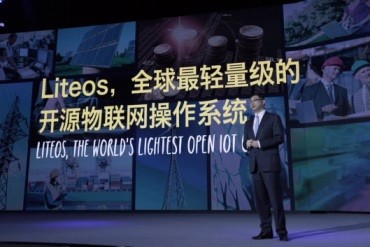Huawei Technologies Co. Ltd., the world's biggest telecommunications equipment maker, has recently joined other global tech giants in the pioneering technology of the "Internet of Things" (IoT), focused on designing an operating system (OS) that would enable business and household appliances to connect with each other online.
The Global Times reported that on May 20, Wednesday, during the Huawei Network Congress 2015 in Beijing, Huawei presented its "Agile IoT" with an operating system called LiteOS, which is capable of controlling basic services. This is seen as the most significant move by the firm in its expansion and development.
A statement released by Huawei on its website said that the solution enables enterprises to build an "agile IoT" infrastructure that would provide infinite business possibilities and implement the digitization in areas such as manufacturing, production and logistics.
According to Huawei executives, the "agile" architecture's free and open standard would enable hardware designers to easily make connectable devices. Huawei also presented its wireless equipment that can be fully customized and readily installed in offices and business settings.
"Standardizing infrastructure will foster the development of Internet applications, including 'IoT' applications," William Xu Wenwei, Huawei's chief strategy and marketing officer, was quoted as saying.
The report said that the company's latest expansion comes in anticipation of the boom in Internet-connected devices and home appliances that consumer-based firms like Xiaomi, Inc. and Apple have been trying to build as ecosystems around the well-known handsets.
Tencent Holding also launched in April its own operating system for Internet-connected devices such as TVs and watches that is open to all developers, challenging rivals Alibaba Group Holding Ltd., JD.com, Inc. and Xiaomi, Inc. in the smart hardware space.
Huawei predicts that by 2025, a total of 100 billion connections will be generated globally and 2 million new sensors will be deployed every hour, the firm's statement said.



























